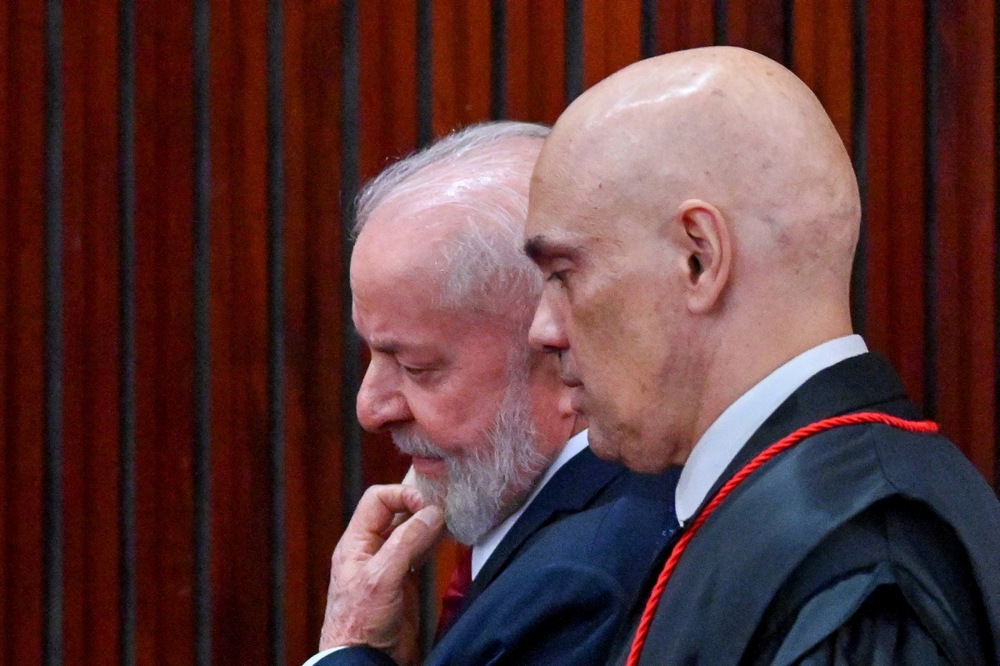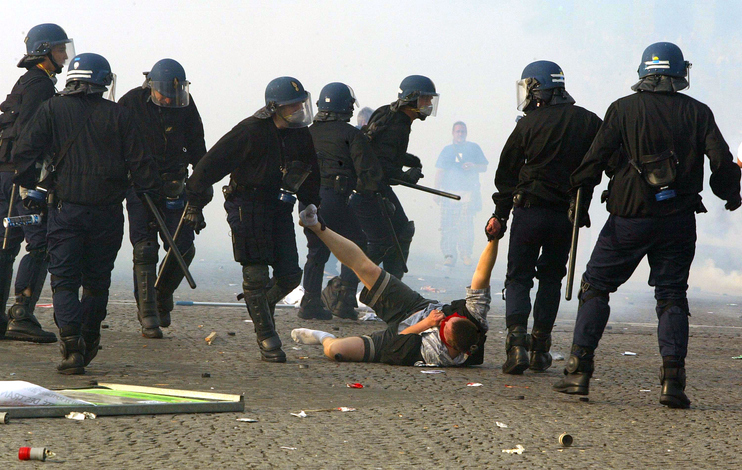A newly released series of worldwide human rights reports by the US strongly criticised the United Kingdom over what it said was a troubling decline in free speech protections there.
Ukraine and Romania were also targeted. Most other European nations received comparatively milder assessments.
In its latest human rights report on the UK, released on August 12, the US State Department said the human rights situation “worsened” over 2024. It noted what it said were significant restrictions on freedom of expression, a priority issue for the current US administration.
The report highlighted the UK’s use of what is described as “restrictive laws” and “arbitrary or unlawful surveillance” to target disfavoured voices, particularly on political and religious grounds.
It pointed to recent legislative measures and policing practices that it said curtailed free speech, including the arrests of individuals for online posts deemed offensive under vague “hate speech” laws.
The report cited cases where UK authorities had penalised citizens for social media activity, raising concerns about censorship and the effect on public discourse.
While the UK section of the document acknowledged the country’s robust democratic framework, it criticised the current government’s approach to balancing security with civil liberties.
It noted allegations of excessive force by police in handling protests, with some cases referred to the Crown Prosecution Service (CPS).
It also highlighted restrictions on political speech deemed “hateful” or “offensive” as well as limits on speech within specific arenas, even through prayer or silent protests.
The day after the UK’s Online Safety Act came into force, protests outside hotels housing asylum seekers were effectively erased from public view for youngsters on platforms including X. https://t.co/GK819qJc9W
— Brussels Signal (@brusselssignal) July 29, 2025
Strict speech laws in the UK have also caused problems for journalists, according to the US State Department.
“Expansive and unclear restrictions on potentially prejudicial reporting on ongoing court and tribunal proceedings limited the freedom of the press,” it said.
In one case, UK contempt of court laws forced US magazine The New Yorker to geo-block British subscribers from reading an online article regarding an ongoing court case.
Compared to previous years, the 2024 report was more pointed, reflecting the administration of US President Donald Trump’s emphasis on calling out allies as well as adversaries for free-speech violations.
This aligned with US Vice President JD Vance’s February 2025 speech at the Munich Security Conference, where he accused European leaders, including those in the UK, of suppressing right-wing voices.
The US State Department was, though, much less critical in its assessment of other western European allies, including Ireland, France and Germany. That was despite it noting an increase in limitations on free speech and a strong uptick of anti-Semitism in France and Germany.
Still, the report could be considered mild as the US has been at odds with Ireland over free speech, political parties in Germany wanting to ban the often attacked Alternative for Germany Party (AfD) and France’s crack down on Conservative media.
A documentary aired by US television station CBS has apparently revealed how Germany criminalised freedom of opinion, causing shock worldwide. https://t.co/2mjxWMXPmI
— Brussels Signal (@brusselssignal) February 20, 2025
For Ukraine and Romania, the report was also more critical.
Ukraine’s human rights situation was heavily contextualised by Russia’s ongoing invasion but the 2024 report did not shy away from calling out the Ukrainian Government’s actions in territories under its control.
It documented credible reports of enforced “disappearances”, torture and arbitrary detentions, often linked to martial law measures imposed since February 2022.
Freedom of expression faced significant restrictions, it said, with the Kyiv government imposing censorship and targeting journalists through violence, threats, or unjustified prosecutions.
The report noted that martial law had, in its view, curtailed democratic freedoms, including that of the press and the right to peaceful assembly, with authorities sometimes failing adequately to investigate abuses.
Romania also faced a grilling, in the first place for the annulment of the results of the first round of the country’s presidential election held in November 24.
There were also “credible reports of restrictions on freedom of expression, and crimes, violence, or threats of violence motivated by antisemitism”, the report stated.
Journalists, based on their investigative reporting, were subjected to harassment and intimidation tactics by authorities, it said.
The 2024 Human Rights Report, released later than usual due to revisions under the Trump administration, reflected a shift in focus towards basic democratic tenets, such as freedom of expression and away from what a State Department official described as “politically biased demands” in previous reports.
Those included discrimination faced by LGBTQ people and a focus on so-called reproductive rights.
The restructuring of the report aimed to make it more concise and aligned with US values, such as the right to life and free speech, the administration said.
Critics argued that the scaled-back scope may omit critical issues including government corruption or electoral freedoms in some countries.
Washington has imposed a 50 per cent tariff on more than half of Brazilian exports. https://t.co/wq8lgb66zH
— Brussels Signal (@brusselssignal) July 31, 2025





